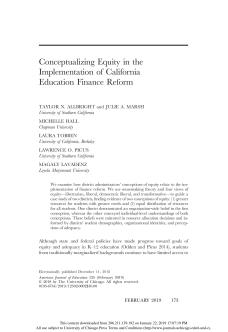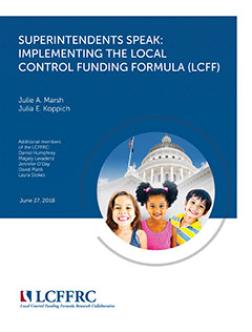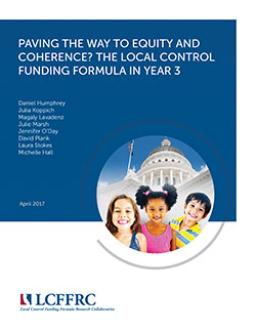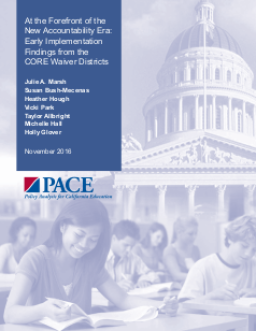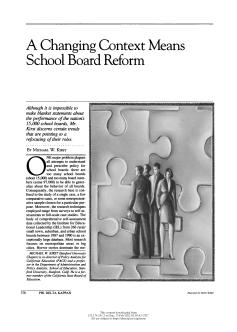Published
Summary
This article uses case studies to explore how district administrators' conceptions of equity relate to finance reform implementation. The authors identify two conceptions of equity: greater resources for students with greater needs, and equal distribution of resources for all students. These beliefs were reflected in resource allocation decisions and were informed by districts' student demographics, organizational identities, and perceptions of adequacy.
Implementing the Local Control Funding Formula
Published
Summary
The Local Control Funding Formula (LCFF) provides base funding and grants for low-income students, English learners, and foster youth, and allows local school systems to allocate resources as they see fit. The LCFFRC conducted a survey of 350 California superintendents to understand their experiences with and views of the law. Results inform policymakers and indicate areas where changes may be needed. The survey sample included districts of varying sizes and proportions of unduplicated students.
Insights From California’s CORE Waiver Districts
Published
Summary
California's Local Control Funding Formula (LCFF) aims to improve educational equity by providing additional funds to districts with disadvantaged students. Districts are required to engage with their communities and develop Local Control Accountability Plans (LCAPs) to identify priorities and allocate funds. However, there are concerns about the quality of LCAPs, lack of stakeholder involvement, and limited transparency. To improve the effectiveness of LCFF, districts must ensure meaningful stakeholder engagement and use data to guide decision-making.
The Local Control Funding Formula in Year 3
Published
Summary
The Local Control Funding Formula (LCFF) gives districts funding authority and requires input from stakeholders to create Local Control Accountability Plans (LCAPs) for equitable resource allocation and improved student outcomes. This report explores stakeholder engagement, implementation challenges, resource allocation, and equity using eight case studies. Despite limitations, this study offers valuable insights into California's K-12 education system's finance and governance.
Learning from the CORE Districts' Focus on Measurement, Capacity Building, and Shared Accountability
Published
Summary
California and the US are undergoing a cultural shift in school accountability policies towards locally-determined measures of school performance. Lessons can be learned from the CORE districts, which developed an innovative accountability system, emphasizing support over sanctions, and utilizing multiple measures of school quality. The CORE districts' measurement system and collaboration hold promise for improving local systems, but efforts to build capacity remain a work in progress.
Published
Summary
The research base for understanding and prescribing policy for school boards is limited due to the large number of boards and members. Common school boards, especially those of small districts, are less researched. To address this, overall trends affecting most boards should be analyzed to determine the need for and direction of school board reform. Waiting for representative data on all boards will delay improvements to policy making. Major changes in school board roles, functions, and operations are necessary due to the interaction of these trends.
